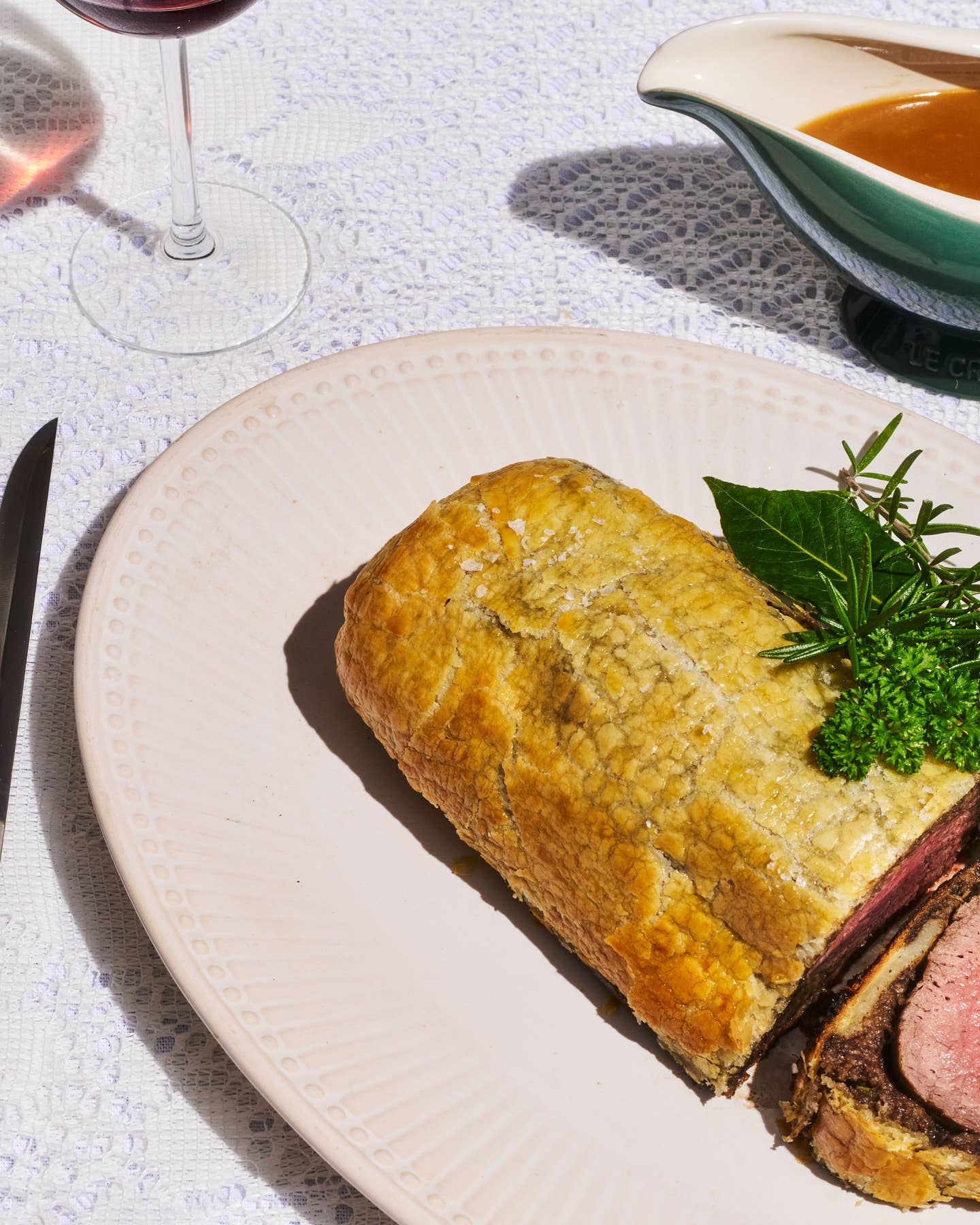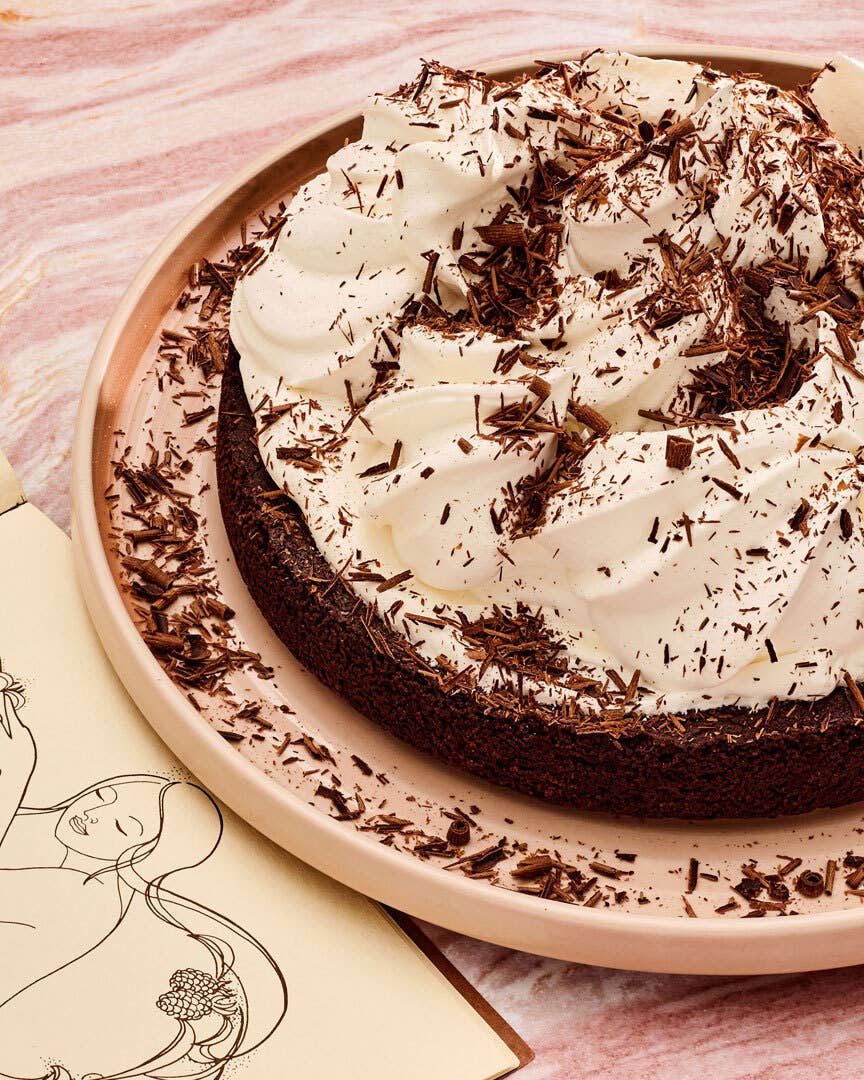
He Used to Bake Bread for 3-Star Restaurants. Now He’s Feeding His Neighbors for Free
In a small upstate New York town, baker Matt Funiciello gives away hundreds of loaves a week to a community in need. Just don’t call it charity.
Food is more than what’s on the plate. This is Equal Portions, a series by editor-at-large Shane Mitchell, investigating bigger issues and activism in the food world, and how a few good eggs are working to make it better for everyone.
“Thawing out dough and pressing buttons is not baking,” says Matt Funiciello, the 53-year-old owner of Rock Hill Bakehouse & Cafe in Glens Falls, New York. “We bake less by the book, and more by feel. Taste and smell are better indicators of good bread than temperature and tester.” His bakery is based at a former Nabisco warehouse in this post-industrial city, population 14,700, which refers to itself as “Hometown, USA.” The original colonial-era hamlet was settled by Quakers on the banks of the upper Hudson River in the Adirondack foothills, an area first called Chepontuc, meaning “difficult place to get around” in Iroquois. On a harsh winter day in late February, the average temperature hovers in the single digits. Wind chill can sharpen that. Getting around remains difficult, and yet, hundreds manage to show up for a free loaf or two from the “Community Bread Rack” positioned outside the bakery’s front door since last May. A sign attached to the shelves reads: These breads are for everyone. No questions asked.
“Nothing is more basic to the human experience than a loaf of bread,” he says.
The quotidian loaf has been a symbol of hunger amid societal upheaval since antiquity. A shortage of bread has fueled riots and revolutions, famously in France during the Flour War of 1775—notwithstanding the apocryphal attribution to Marie Antoinette that starving peasants should eat brioche—and in Russia during the February Revolution of 1917. A famous bread riot led by women took place in Richmond, Virginia during our own Civil War. More recently, civil protests broke out in Khartoum, Sudan and Beirut, Lebanon when the price of bread soared or flour became scarce. Targeted attacks on bakeries in Aleppo at the height of the Syrian civil war were key to the repressive Bashar al-Assad regime’s kneel or starve strategy.
Our nation’s contribution to the lexicon of hunger is “breadline.”
Breadlines remain an enduring symbol of the economic hardship and hunger experienced by Americans throughout the Great Depression, but the origin of the concept predates the infamous Wall Street Crash of 1929 by more than 50 years. In November 1876, Louis Fleischmann, a member of the family that first developed packaged dry yeast for home use, opened a branch of his Vienna Model Bakery on Broadway and 10th Street in Manhattan. According to a contemporary account in The New York Times, Fleischmann soon noticed a crowd standing over the grating outside, smelling the hot loaves baking in the basement. When he offered to share bread for free, a line quickly formed, and he consequently “determined to give away bread to any who would come for it.” The breadline grew so long during the era known as the “Long Depression” that Fleischmann’s staff reportedly handed out 500 loaves a night. When chastised by “scientific charity dispensers” for giving food to the undeserving, he replied: “If a man will stand on a curb two or three hours to get a loaf of bread or a few rolls, he’s hungry. That’s enough for me.”
A loaf of Funiciello’s Farm Bread—his name for a style of French sourdough called pain au levain—begins life in the walk-in at Rock Hill, where 400 pounds of aged, natural starter bubbles and ferments at all hours. He sources organic, untreated wheat flour from regional mills, including one across the border in Quebec Province, where Funiciello spent part of his childhood. Shift workers arrive to prep the starter around midnight. Before dawn the next morning, the bench crew turns up to mix batches of dough, which rest in barrels for another five hours before getting scaled, shaped, and proofed, destined for the ovens by midday. Each daily bake produces 3,000 loaves. All by hand.

Funiciello formerly supplied bread to Manhattan restaurants like Aureole and Le Bernardin, and was one of the early vendors at Union Square Greenmarket, but about two years ago pulled back to focus on his upstate customers and regional supermarket accounts in the Catskills, Berkshires, and southwestern Vermont. His bread also shows up on the bakery’s vegan sandwich and pizza menu. Funiciello cites civil rights activist Cesar Chavez and culinary historian Karen Hess as personal heroes. He learned the bread trade from noted bakers Wendy and Michael London, founders of Rock Hill, and acquired the bakery from them in 1991.
“We exist in a strange space,” says Funiciello. “This isn’t a massive factory or a small artisan place with a dozen customers. Usually the middle part of this market is where you die, but I’m interested in human resources. You can’t make great bread without taking care of your people.”
At present, the bakery places 750 loaves on the community rack every week. Funiciello shares bread fresh out of the oven rather than unsold supermarket returns or day-end product, a core difference from charitable donations by many larger corporations (his leftovers are given to an animal sanctuary.) He believes people deserve quality food even if they’re struggling financially, and shouldn’t have to settle for seconds, let alone climb into a dumpster to scavenge discarded groceries.
“I’m seeing people walking across from the Community Action Agency [a regional social services nonprofit], looking ill-suited for the weather, with their kids in tow,” says Funiciello. “And others riding their bikes, even in the snow. But I make a point to not have any interaction, because I don’t want anyone to be ashamed. Nothing wrong with them being in a bad spot, a lot of people are in a bad spot right now.”
Rock Hill’s mission echoes other grassroots baking initiatives that have recently emerged around the country. Structural government support is failing to reach low-income and historically marginalized communities, food banks and soup kitchens are overwhelmed, and even those who, pre-pandemic, made a living cooking or pouring drinks are now unable to feed their families. As a result, mutual aid and non-profit alliances are scrambling to fill empty stomachs. Community Loaves distributes honey oat sandwich bread baked at home by volunteers to local food pantries in the Pacific Northwest; Julie Copoulos and Amanda Milazzo of Small Oven Bakery share extra pain au levain with the community center in Easthampton, Massachusetts. For its Free Bread Project, Schmidt’s Pastry Cottage passes out “twofer” sourdough baguettes—one to keep, one to give to another friend in need—at both Salt Lake City locations. In partnership with local food banks, Austin’s Easy Tiger has a pay-it-forward Community Bread Challenge for customers who want to buy a loaf for hungry neighbors, and aims to give away 100,000 by Labor Day. In Brooklyn, Lakou Cafe and Allan’s Bakery have supplied bread and pastries for social actions by Fuel the People. Bakers Against Racism is a fundraising bake sale network devoted to multiple social justice causes.
“I’m grateful to be in a position to do this,” says Funiciello. “And if I know the bread is gone from the rack at the end of the day, that message is a clear one, and we have to bake a little more the next day.”
Matt Funiciello asks readers who want to support Glens Falls residents in need to please donate to the food pantry at the regional Community Action Agency.
Keep Reading
Continue to Next Story










